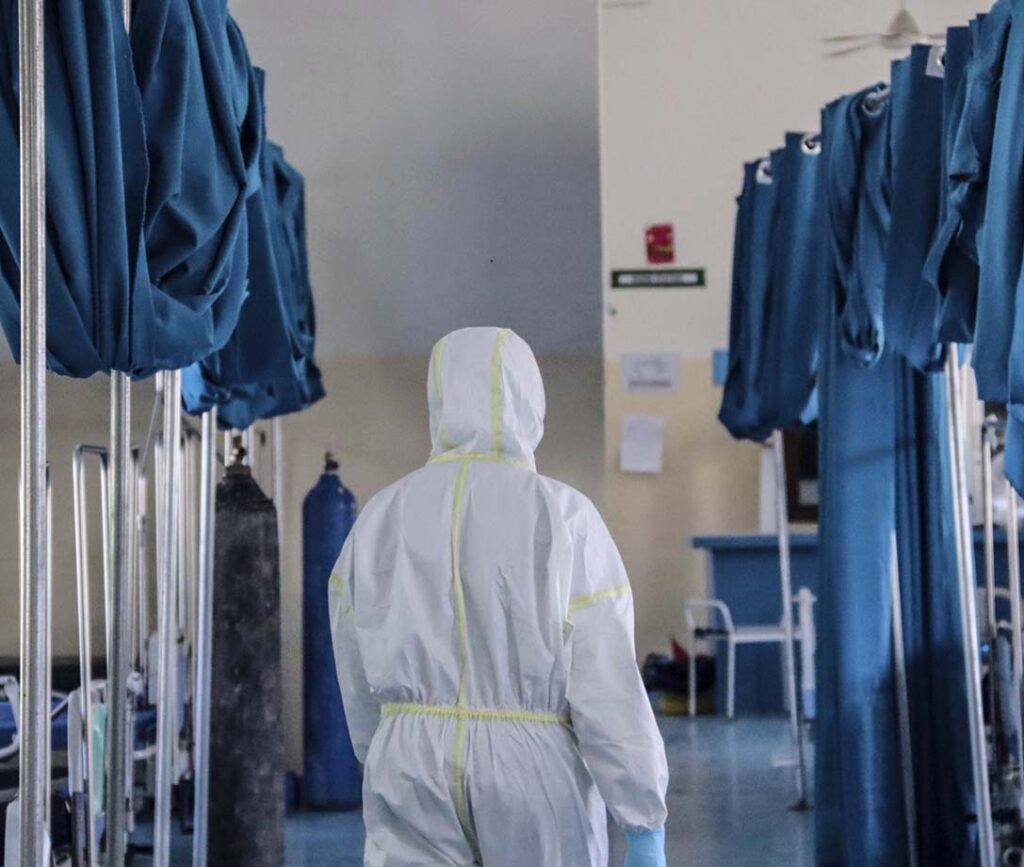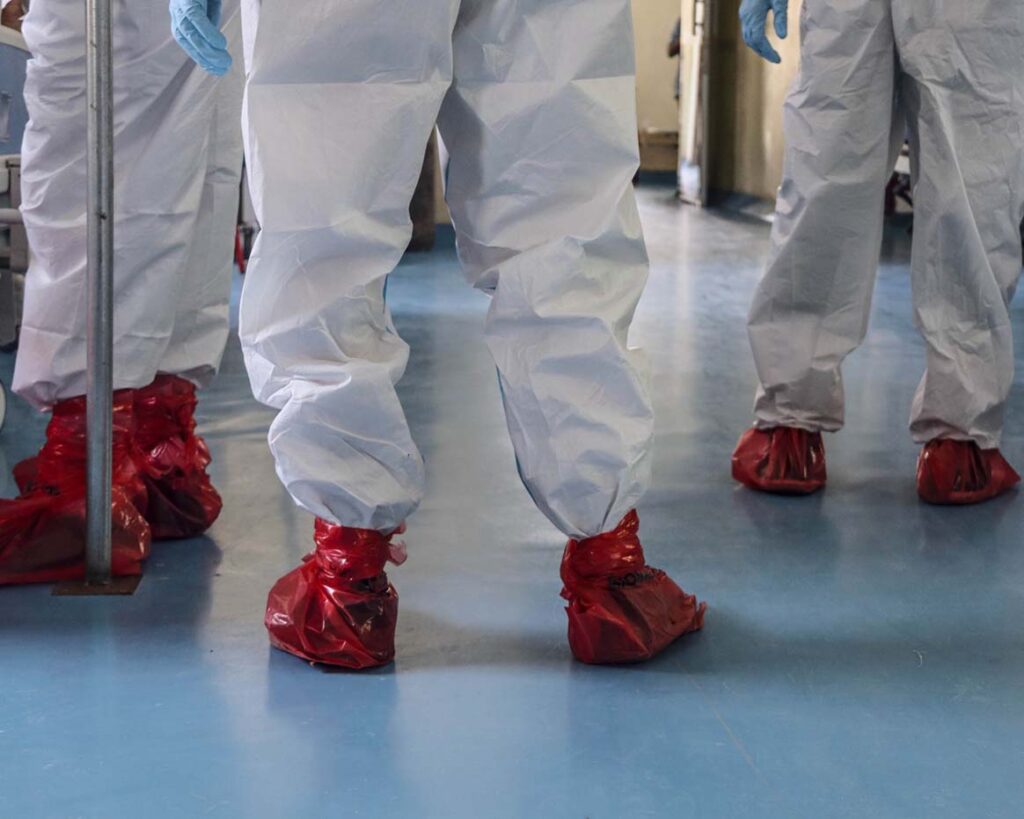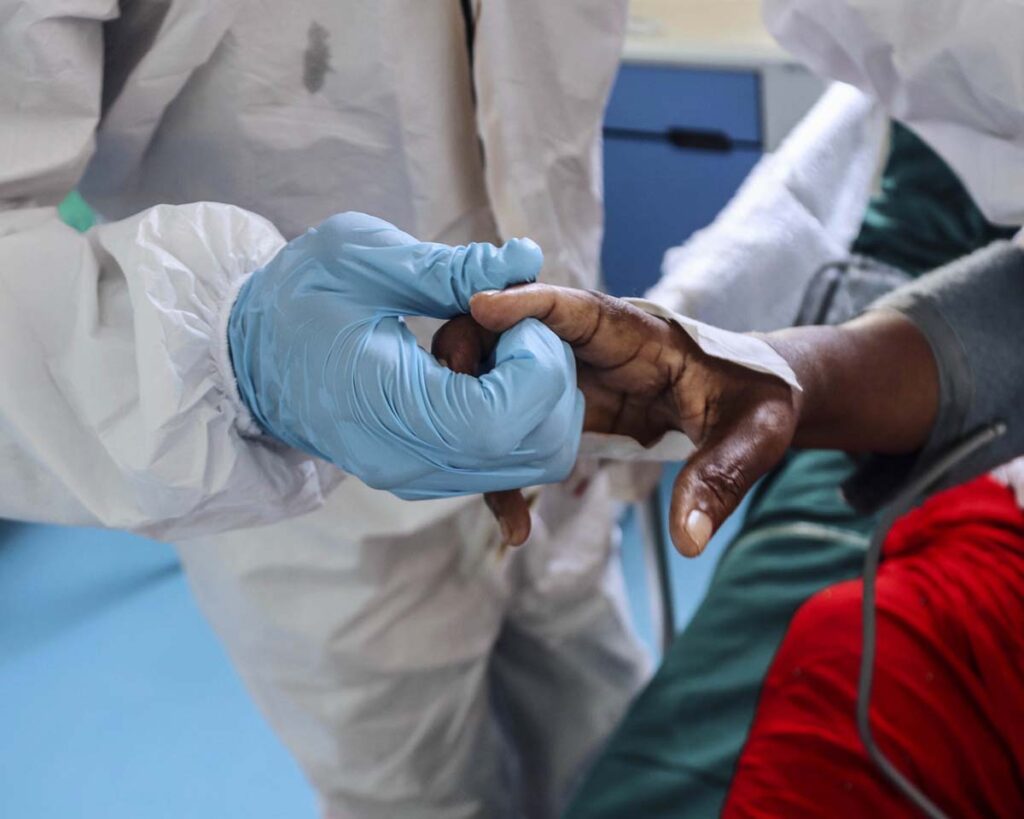The faces of patients are not shown to prevent stigmatisation and medical staff cannot be named.
“We want to inform the Somali people that today, March 16 2020, we can confirm the first case of coronavirus in the country,” said Somalia’s health minister, Fawziya Abikar, in a televised statement.
Suddenly, panic set in. Now the virus was real and on our shores.
For years, Somalia has struggled with conflict, and one of its many repercussions has been a fragile healthcare system. How would it manage a pandemic which had brought the world to a standstill?
As of July 14, the number of Covid-19 cases was 3 072 and 93 people had died. Authorities have instructed people to stay home and follow restrictions to slow down the spread of the disease.
Uncertainty has taken over.
Not everyone can stay at home. The people at the forefront of fighting the pandemic barely get to go home and I was determined to document the difficulties they face and tell their stories.
I set out for the place that scared me the most — De Martini Hospital in Mogadishu — the only hospital in Somalia treating Covid-19 patients.
 Hotspot: General wards at the De Martini Hospital were converted overnight into intensive care wards.
Hotspot: General wards at the De Martini Hospital were converted overnight into intensive care wards.
My camera in hand, I was ready to show the world Somalia’s Covid-19 stories and what goes into making the headlines and statistics.
Donned in full personal protective equipment, I felt as though I was wearing anxiety itself. It weighed on my body. I observed with awe the medics treating patients while wearing full body protection in Mogadishu’s humid heat, unflinching in their commitment to their job.
Although it felt like an eternity, I spent only a couple of hours in the hospital because of the Covid-19 restrictions.
When I left I felt a new-found respect and empathy for the health workers who spend most of their days there, working around the clock.
They have made personal sacrifices for the benefit of others. Many were called in to help just before the holy month of Ramadan, having to forego returning to their homes and families outside of the city.
With little time to eat and sleep, they work under pressures most of us cannot imagine, away from their homes with barely a moment to call their loved ones. Watching them, I wondered how much consideration was being given regarding their mental health and wellbeing.
On the physical side, levels of Covid-19 transmission among health workers have rung alarm bells, according to the medics at the hospital. The shortage of protective equipment and other supplies are contributing to the spread of the virus.
 Health personnel workers fully kitted up in protective suits in the Mogadishu heat.
Health personnel workers fully kitted up in protective suits in the Mogadishu heat.
To put it in perspective, Mogadishu has a population of about 2.5-million people, excluding the displaced people living in Nabadoon refugee camp on the outskirts of the city. De Martini Hospital has 266 isolation beds, 20 intensive care unit beds and, on average, 70% of daily Covid-19 tests come back positive.
Despite these difficulties, the medical staff are doing much more than they are paid to do and their dedication was touching. I saw nurses ensuring that patients hooked to oxygen tanks were treated with the utmost care, ensuring they were as comfortable as possible.
 Doctors gather around a critically ill patient. The faces of patients are not shown to prevent stigmatisation and medical staff cannot be named
Doctors gather around a critically ill patient. The faces of patients are not shown to prevent stigmatisation and medical staff cannot be named
As has been the case globally, widespread misconceptions about the coronavirus, fake news and rumours have contributed to its spread in many areas of my country. Many Somalis still question whether the virus is real.
I hope this photo series depicts the truth — that Covid-19 is very real and that it is affecting people across the board, from those who have fallen ill to the medical staff who are making sacrifice upon sacrifice to save lives.
I hope it reminds us to never undervalue or underestimate the importance of doctors, nurses, cleaners, administrative staff and the countless others who assist us when we fall sick.
I would like people to see these photos and decide for themselves what’s right, what’s wrong, what’s real and what’s not. And the only way for that to happen is to tell stories from the front line of the disease.
It’s important for people to see the photos of Covid-19 on the front line. They were not easy to capture.
Often, getting access to any government building in Somalia is difficult. After I finished taking photographs, the hospital authorities went through my memory card and would not give me the names of the medical staff I spoke to.
The common theme in most of the images is the protective suit and the mask on the nameless medical personnel. I long for a day when the coronavirus will be nothing more than a memory, a thing of the past.
Since posting some images of this series on Instagram (@cyprints) many people from various places contacted me about how they have been affected by Covid-19. It doesn’t seem to matter where I look, the coronavirus everywhere.
Facing the fight: Recently graduated nurses have joined the effort to contain the pandemic.
This feature first appeared in The Continent, the new pan-African weekly newspaper designed to be read and shared on WhatsApp. Get your free copy here.